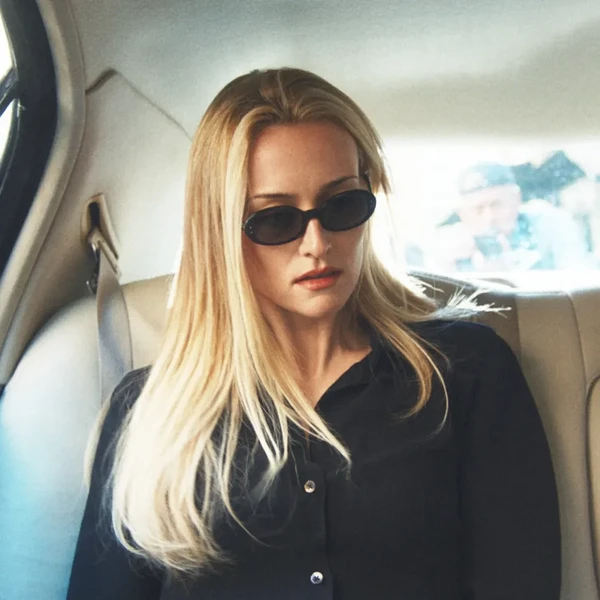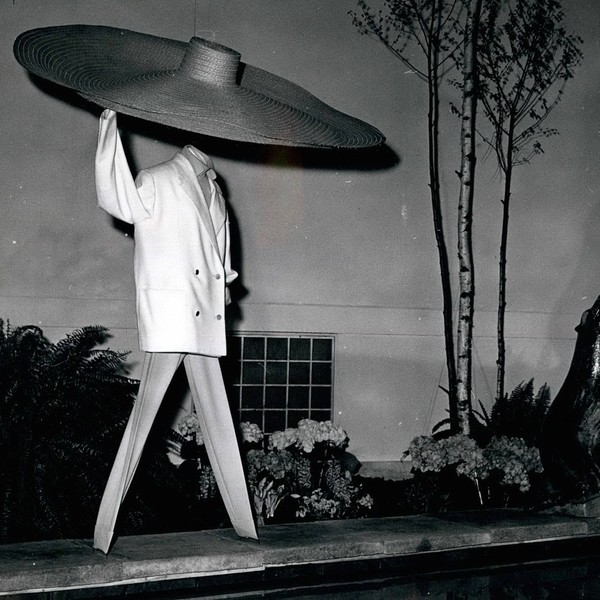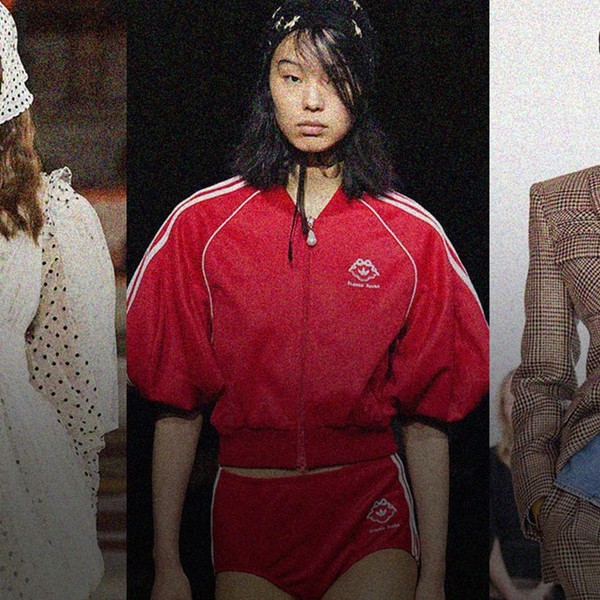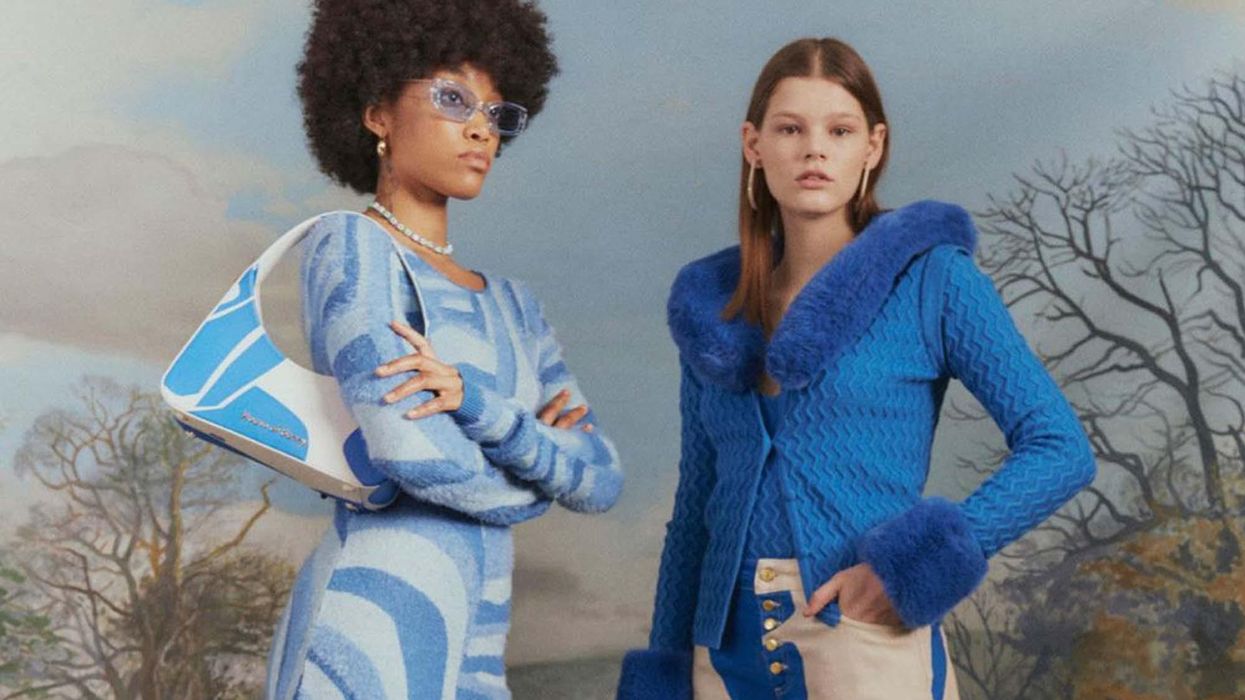
For many, a “smart” purchase might suggest one whose pricetag is far below its actual value. And though sticking to a budget is important, making smart consumer choices goes well beyond asking how much an item costs. Long story short: It takes more work to shop consciously in a way that respects every part of the supply chain and honors your own personal style. But it’s far from impossible and well worth the efforts.
Ahead of the start of a new year, we’re turning to experts who understand what sustainability means, beyond just a buzzword. They include Ana Kannan, the founder of Toward, a multi-brand e-commerce site that rigorously vets its products and houses of-the-moment names like House of Sunny, AGOLDE, and Rejina Pyo, meanwhile Vanessa Barboni Hallik is the founder and CEO of Another Tomorrow, a label that offers luxurious pieces comprised of recycled and responsibly source materials, as well as transparency into each product’s provenance story. Lastly, in the spirit of kickstarting 2022 with improved habits, we checked in with Lauren Bravo, author of How to Break Up with Fast Fashion, which chronicles, in part, her own journey to quit overconsumption beginning on New Year’ day.
Together, they make it clear that being a smart shopper is all about being engaged and unafraid to ask questions—of brands you love and of yourself. After all, a better, more conscious fashion future requires dedication from all parties involved.
Ana Kannan, Founder of Toward

Photo: Courtesy of Ana Kannan
In what ways (if at all) is the conversation around conscious consumerism unique in 2022? And what should we, as shoppers, be aware of going into a new year?
"While conscious consumption has been a part of the conversation in the fashion industry for years, I think that the urgent and ubiquitous nature of the conversation in 2021 is an indicator that it will dominate the industry in 2022. This past year, we had everything from the disruption of a fashion show to indicate the urgency of fashion’s impact on the climate, to the partnership between a celebrity and a fashion house to end the use of fur, to the entrance of a traditional luxury fashion house in the resale industry.
"Shoppers should know that going into 2022, brands will be taking steps to further narratives of sustainability and appeal to customers who want to keep the planet top of mind when shopping. But be aware that these efforts take real work. I encourage shoppers to challenge brands on what tangible efforts they’re making to truly achieve environmentally responsible change."
What’s one of the most important habits consumers can unlearn in 2022? And what’s a more intentional habit we can replace it with?
"One of the most important habits that consumers can unlearn in 2022 is overconsumption; shoppers can stop buying more and start buying better. Say no to fast fashion and invest in pieces that are made with quality craftsmanship that you’ll love for years to come.
"At Toward, we’ve addressed this problem of overconsumption by limiting the number of fashion purchases that our customers can make during a calendar year to twelve per year, if the customer has an account on our site. We're kicking this off on January 10, 2022. We did this to encourage customers to buy better rather than buying more."
In the interest of shopping smarter in 2022, what does “shopping smart” mean to you? What are tips for keeping yourself accountable to it?
"To me, shopping smart means doing your research to learn more about the sustainability and responsibility initiatives that your favorite brands are putting into practice. Ask questions about their efforts to decide if they’re committed to systemic environmental change. And be wary of terms like ‘clean,’ ‘green,’ or highlighting a new ‘sustainable collection’ ahead of noting any sustainability goals for the wider brand. If you’re unsure where to start, I recommend checking out Toward’s own responsibility framework and associated brands, to get a sense of who’s doing a great job of being a truly responsible retailer, and what types of questions to ask."
Lauren Bravo, author of How to Break Up with Fast Fashion
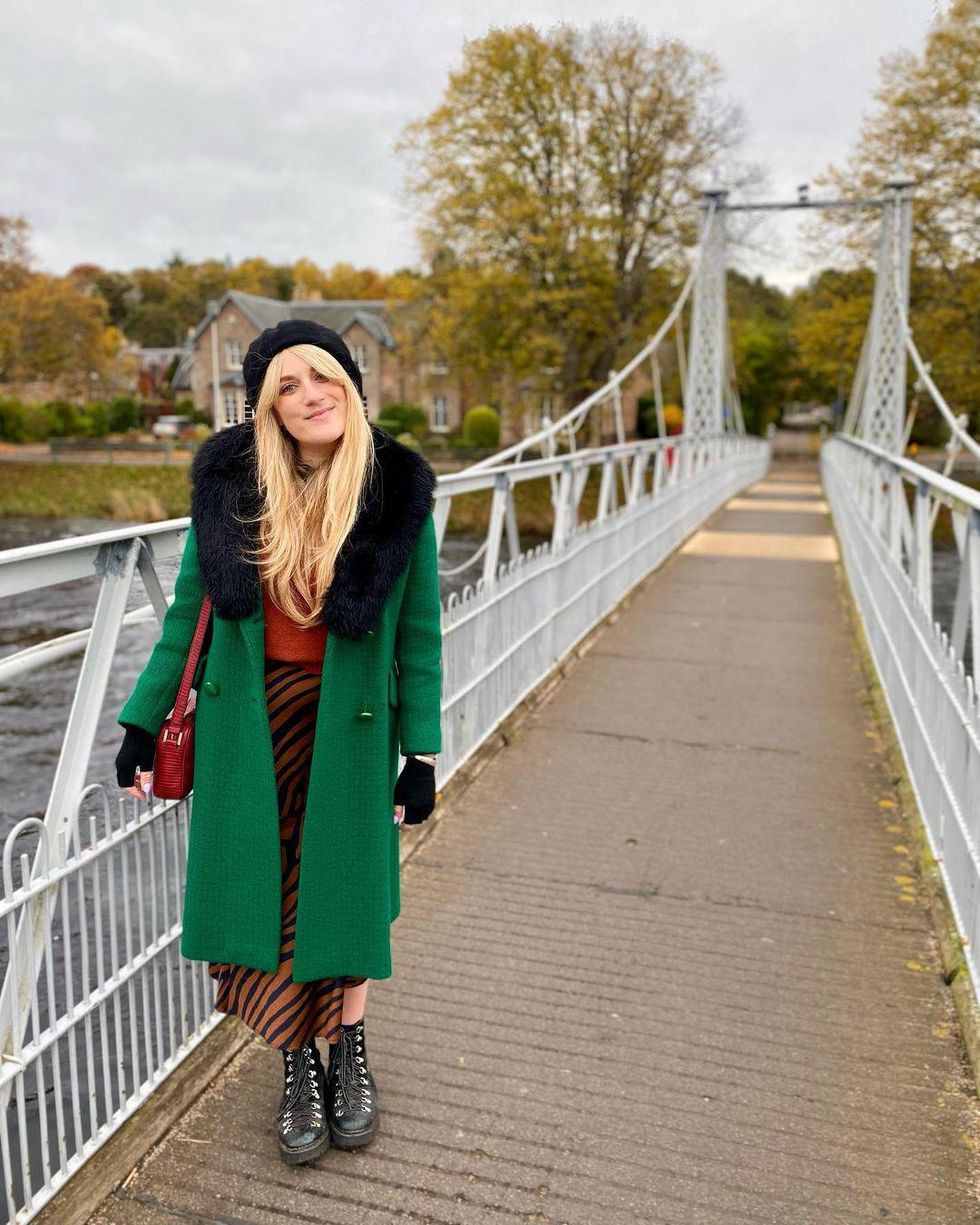
Photo: Courtesy of Instagram/@laurenbravo
In what ways (if at all) is the conversation around conscious consumerism unique in 2022? And what should we, as shoppers, be aware of going into a new year?
"I’d agree it’s a topic that has been leading fashion industry conversations for years, but actually, I think it’s only very recently that the average fast fashion shopper has started to become aware that their wardrobe has a huge environmental and humanitarian cost. And in many cases, consumers still aren’t aware. The fast fashion market is still huge, and hugely toxic, and I’d like to believe that most of the people still buying it aren’t doing so because they don’t care— it’s because they genuinely don’t know, or because they feel they have no other options.
" Sustainable fashion is still seen as elitist by many people, sometimes mistakenly (the most sustainable clothes are the ones already in our wardrobes!) and sometimes for entirely valid reasons (who has $300 to spend on a new dress? Why do these ‘thoughtful, caring’ brands all stop at a size 14?). But thankfully that is changing, there are more and more small brands offering size-inclusive and more affordable options, and shoppers are getting much more vocal when it comes to demanding sustainable fashion that actually serves them."
As someone who's all too familiar with breaking a harmful shopping habit come January 1, what’s one of the most important habits consumers can unlearn in 2022? And what’s a more intentional habit we can replace it with?
"I think it’s probably the habit I struggled with the most (and still do!) which is buying stuff out of boredom or emotion. It wasn’t until I quit fast fashion on January 1, 2019 that I realized how much I used shopping as a go-to cure for every feeling. Sad? Shop! Happy? Shop! Hungry? Shop! Insecure? Shop! PMS? You get the picture…
"But it’s tough because craving that thrill of novelty is part of human nature; psychologists call it ‘habituation’, the way we get bored when we’re overexposed to the same stimulus (ie. an old outfit) and start sniffing around for a new hit of dopamine instead. So to replace that old habit, I’d recommend getting better at styling and experimenting with the clothes you already own. It sounds obvious, but when was the last time you actually spent an hour or two trying on new combinations of clothes and accessories already in your wardrobe? Any time I feel that urge to buy something that I know I don’t really need, I force myself first to go back to my wardrobe, dig out all the old pieces I’ve forgotten about, and be creative putting new looks together. Half the time you’ll find something that scratches that same trend itch without buying anything new."
In the interest of shopping smarter in 2022, what does “shopping smart” mean to you? What are tips for keeping yourself accountable to it?
"I’d say it’s doing a bit of homework, if you can, and researching every brand before you give them your hard-earned cash. The Good On You app is really handy for that. And if a brand doesn’t have the info you want, ask them questions! Where are their clothes made, and who by? Are they paid a living wage? What about their fabric? Sadly most of the time if they’re not telling you straight up, it’s because they don’t want you to know. I’d also suggest living by the #secondhandfirst rule, if you can, which means only buying brand-new clothes as a last resort. Always check resale sites and charity shops first, or consider rental instead of buying (especially for partywear), or just borrowing it off a mate instead.
"Finally, try to get a handle on the difference between ‘like’ and ‘want’ and ‘need’. Obviously, we all buy fashion that we don’t strictly ‘need’—that’s fashion’s whole deal. But sometimes there’s nothing more depressing and guilt-inducing than buying something gorgeous that you know deep down you’ll barely wear—often because it’s designed for a life you don’t lead or a person you’re just not. Try to think of fashion as an art form instead of an everyday essential. Just because you love a dress on the hanger (or on Instagram!), it doesn’t mean it automatically deserves a place in your life."
Vanessa Barboni Hallik, Founder and CEO of Another Tomorrow
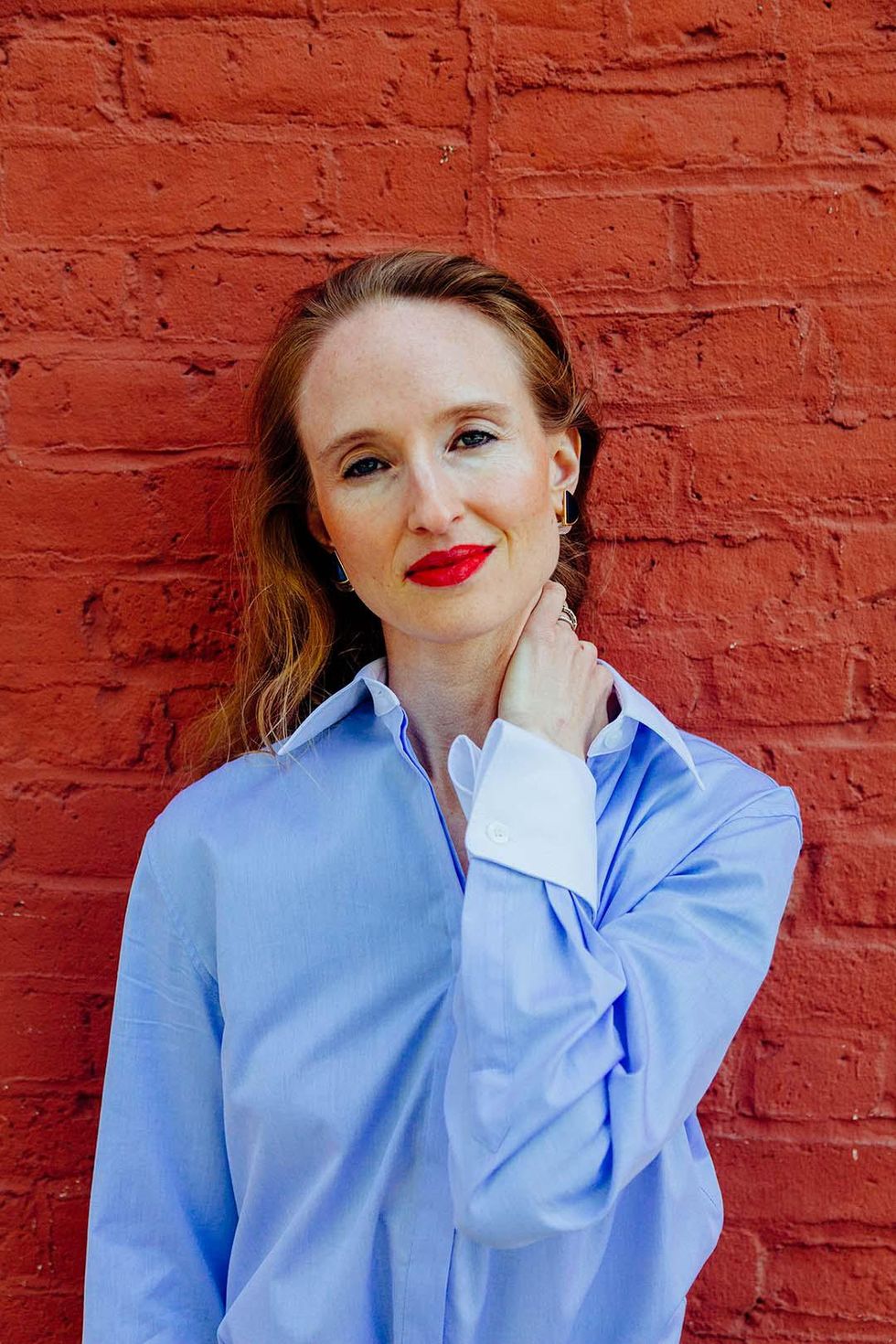
Photo: Courtesy of Vanessa Barboni Hallik
In what ways (if at all) is the conversation around conscious consumerism unique in 2022? And what should we, as shoppers, be aware of going into a new year?
"We are at a tipping point for the planet and what used to be a bonus is now an imperative. Within this frame, I believe that two main forces are driving a new era of conscious consumerism. First, resale is reigniting the concept of clothing as an asset. And second, traceability and transparency are going to fuel a new era of brand accountability.
"Both of these are great news on the waste and environmental front, however they do not necessarily address one of the undercovered issues in fashion, which is human welfare and the fact that the vast majority of the people who make clothing do not earn a living wage. In my view, questions from customers are incredibly powerful and I suggest that if shoppers focus on only one it would be: was the person who made this item paid a living wage?"
What’s one of the most important habits consumers can unlearn in 2022? And what’s a more intentional habit we can replace it with?
"Turning away from inconvenient truths. Your engagement is incredibly powerful, and it doesn't have to mean walking away from your favorite brands, just engaging them.
"Commit to staying curious and asking questions of brands you buy from. In addition to the ‘living wage’ question I mentioned, as an analogy, try taking the concept of farm-to-table and apply it to clothing, asking where the materials were sourced from and why. Most often, brands won't have the answer, but the fact that you are asking will spark important questions for them and let them know you care."
In the interest of shopping smarter in 2022, what does “shopping smart” mean to you? What are tips for keeping yourself accountable to it?
"Think about each piece as an asset. Will it retain its quality, relevance, and value over years? Can you resell it? In addition to being obsessive about sourcing, these are the questions I ask of myself. And other than T-shirts and similar items worn close to the body, I do not buy anything I do not intend to keep for years and could not resell."
Photo: Courtesy of Instagram/@towardofficial
Want more stories like this?
The Forgotten Faces of Sustainability
5 Founders Share How to Launch a Truly Sustainable Brand
These Sustainable, Plastic-Free Beauty Products Are Changing the Game

